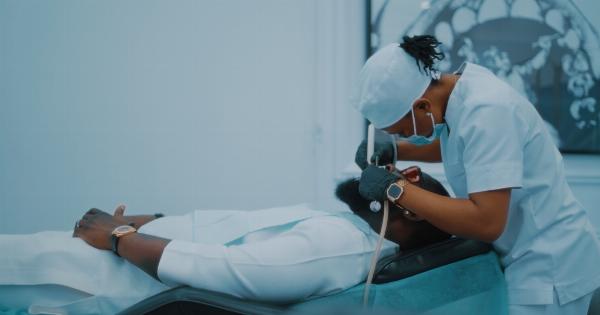Hiccups are involuntary contractions of the diaphragm muscle, which is responsible for the rhythmic expansion and contraction of the lungs during breathing. These contractions occur suddenly and create a distinct sound known as a hiccup.
Hiccups can be a temporary inconvenience or a chronic problem lasting for hours or even days.
The Reflex Arc of Hiccups
Hiccups are a reflex arc, which means they follow a certain pathway in the nervous system. The reflex arc consists of a stimulus, sensory neurons, interneurons, motor neurons, and an effector.
In the case of hiccups, the stimulus can be anything that irritates the diaphragm or its surrounding nerves.
Causes of Hiccups
While most hiccups go away on their own, persistent or recurrent hiccups may be a sign of an underlying condition. Here are some common causes of hiccups:.
1. Eating and Drinking Habits
Rapidly eating or drinking, especially consuming hot or spicy foods, can irritate the diaphragm and trigger hiccups. Similarly, consuming carbonated beverages, like soda or beer, can lead to an accumulation of gas in the stomach and cause hiccups.
2. Gastroesophageal Reflux (GERD)
GERD occurs when stomach acid flows back into the esophagus, irritating the throat and diaphragm. This irritation can trigger hiccups in some individuals with GERD.
3. Irritation of the Phrenic Nerve
The phrenic nerve, which controls the diaphragm muscle, can be irritated by various factors, leading to hiccups. These factors include respiratory infections, lung disorders, tumors, or presence of foreign bodies in the chest.
4. Central Nervous System Disorders
Disorders affecting the central nervous system, such as meningitis, encephalitis, or stroke, can disrupt the normal functioning of the reflex arc involved in hiccups. This disruption can result in persistent hiccups.
5. Medications and Anesthesia
Some medications, particularly those that affect the central nervous system, can cause hiccups as a side effect.
Anesthesia during surgical procedures can also temporarily disrupt the normal functioning of the diaphragm, leading to hiccups post-surgery.
6. Abdominal Surgery and Conditions
Abdominal surgeries, including those involving the digestive system or the diaphragm itself, can cause inflammation or irritation that triggers hiccups.
Similarly, conditions like liver disease, pancreatitis, or bowel disorders may contribute to persistent hiccups.
7. Emotional Stress and Excitement
Intense emotions, such as stress, anxiety, or excitement, can disrupt the normal breathing pattern and potentially lead to hiccups. These hiccups are often transient and resolve once the emotional state returns to normal.
8. Temperature Changes
Exposure to sudden temperature changes, such as drinking a hot beverage followed by a cold one, can irritate the nerves involved in the reflex arc of hiccups. This irritation may result in hiccups.
9. Carbon Dioxide Buildup
In some cases, excessive carbon dioxide buildup in the bloodstream can stimulate the diaphragm and cause hiccups. This buildup can occur due to certain respiratory conditions or breathing abnormalities.
10. Unknown Causes
In many instances, the exact cause of hiccups remains unknown. These cases are often referred to as idiopathic hiccups and may resolve spontaneously without any specific treatment.
Treating Hiccups
In most cases, hiccups resolve on their own and do not require medical intervention. However, if hiccups persist for an extended period, medical attention may be necessary. Various remedies and techniques can be used to alleviate or stop hiccups:.
1. Holding Your Breath
One common technique involves holding your breath for a short period, which helps regulate the breathing pattern and might stop hiccups.
2. Drinking Water
Sipping water slowly or taking small sips from the opposite side of a glass can help stimulate the vagus nerve, potentially interrupting the hiccup reflex arc.
3. Eating a Spoonful of Sugar
Consuming a spoonful of sugar triggers the release of certain hormones that may modify the nerve impulses involved in hiccups.
4. Applying Pressure to Eyeballs
This technique, known as ocular pressure, involves gently pressing your fingers against your closed eyelids to stimulate the oculocardiac reflex, which might interrupt the hiccup reflex arc.
5. Breathing into a Paper Bag
Rebreathing carbon dioxide by breathing into a paper bag for a short time can help regulate the diaphragm contractions and alleviate hiccups.
When to Seek Medical Advice
If hiccups persist for more than 48 hours or significantly affect your quality of life, it is recommended to consult a healthcare professional. They can evaluate your condition, identify potential underlying causes, and provide appropriate treatment.































